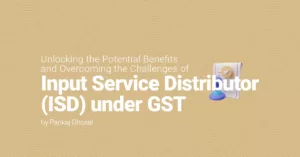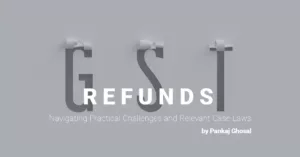Union Budget 2021 – The Budget Of The Century?
Having gone through the event of the century (maybe even more), nothing less than a “Budget The Century” was the need of the hour! The COVID-19 pandemic has thrown multiple challenges for any government to deal with and governments across the world are facing their unique set of challenges. The developed world continues to reel under health issues from the pandemic while developing countries are trying to figure out the process of economic recovery.
For India, it is clearly working out its way to economic recovery. And the problems are in plenty. Rising commodity prices, high inflation, lower interest rates, increasing unemployment, rising NPAs for banks, lower tax collections, increased burden of revenue expenditure, geo-political and political issues, etc. are just a few that come to top of mind.
In the middle of all this, the silver lining is that the domestic economy has shown resilience and there are offshoots of economic recovery. Throughout the pandemic period, the Government instantly focussed on making India a stronger manufacturing hub, not only to attract investments moving out of China but also to make India self-reliant for its own domestic demand.
The 2021 Economic Survey nailed it by strongly pushing the need for investment in R&D. I have always been a believer that a major difference between India and other smaller countries (in terms of size and population) but economically stronger countries such as Japan and Korea, is the investment in R&D by these countries as compared to India. With the scale that India has, it is unnerving to imagine that very few Indian companies are truly global and brand owners on the world map. Time has really come for Indian business houses to take their product global rather than just become manufacturers to global brands.In order to truly create long-term sustainable value, innovation (and not just customization of global technologies) will be the key.
Expectations, Questions Before TheBudget,And Initial Reaction To The Union Budget 2021 Speech
Moving on, the question came down to that what could the Hon’ble Finance Minister (FM) really do in this Budget?
Can we take short to medium-term steps as stepping-stone to long-term goals? Is there enough political willpower and leverage to allow room for the FM to think long-term? Can the FM truly deliver the BudgetOf The Century?
These were the questions I had before we all heard the Union Budget 2021 speech, with a zillion expectations and a hope that we will be a peace-loving and equitable nation, keeping in mind that we are a diverse country with 1.5 billion people to be kept satisfied at every stage! Not at all easy, eh?
Overall, from the Union Budget 2021 speech, one could say that the focus from capital expenditure has not swayed and the temptation of spending more on revenue has largely been kept in check. There was the acceptance of a significant fiscal impact owed to COVID-19 and how that has pushed back the plans for achieving the fiscal deficit target of 3% of the GDP.
It seems for the moment that the FM has resisted tinkering with tax rates to fund the expenditure and has relied more on Government borrowing or disinvestment targets, which seems the righteous path to tread on, both in short-to-medium term. In addition to the ongoing process of disinvestment of multiple of PSEs, the Government has set a target for disinvestment and strategic sale of two public sector banks and one general insurance company.
The Government aims to complete these transactions by March 31st 2022, which at the moment, seems a little ambitious given the experience with earlier disinvestment efforts. In addition, non-core assets such as the land owned by PSEs or the Government will also to be monetised by creation of a Special Purpose Vehicle.
Continued Focus On Infrastructure And More Focus On Insurance, Banking, And Ease Of Doing Business
The Union Budget 2021 speech focused quite significantly on the infrastructure sector. There was a considerable increase in the budget outlay to be spent on infrastructure. This is in continuation of what the Government has focused on in earlier years. To fund the capital expenditure, the FM also suggested an increased focus on monetisation of existing assets.
Insurance is likely to be a key sector, especially with the impact of the pandemic pushing people to insure themselves against such contingencies in the future. Hence, permitting higher foreign investment of 74% in the insurance sector, albeit with certain conditions – is a welcome step. This shall provide the much-needed capital to the insurance sector, considering the penetration of insurance is extremely low in India.
The concept of a “bad bank” has been under discussion and with the rising number of bad loans post-COVID, it seemed even more necessary. The FM mentioned about creating an asset reconstruction company (ARC) to take over bad loans from banks and then deal with the same in a specialised manner.
Having seen insolvency business from close quarters – I feel that more than the funds, the focus and specialisation which an ARC as such can bring in to deal with bad loans is extremely important. This should help the banks to focus on new credit push rather than spend energies on worrying about bad loans.
The Union Budget 2021 also focussed on the ease of doing business on multiple fronts. The decriminalisation of offences under the Companies Act was started in earlier years and on the same lines, offences will be decriminalised under the Limited Liability Partnership Act, as well. The definition of small companies shall be expanded to ease the compliance requirements under the Companies Act. More thrust will be given to one-person companies and entrepreneurs will be allowed to set up, operate, and later convert one-person companies. The Ministry Of Corporate Affairs will use data analytics to improve compliance, advisory, and reduce litigation digitally.
Union Budget 2021 – How Did It Fare On The Tax Front?
Similarly, under tax proposals, the FM sought to bring down the time limit for re-opening of assessment proceedings to 3 years, which is a significant reduction from the existing time frame of 6 years. Even in case of serious fraud, the time limit for re-opening of assessment, even though shall remain same at 10 years, it will come with stringent conditions – including one which would require the approval of the Chief Principal Commissioner.
To ease tax disputes for small and medium enterprises, the FM seeks to set up a dispute resolution panel for resolving tax cases with smaller tax demands. The Vivad Se Vishwas scheme launched earlier to settle long standing tax disputes seems to have found the acceptance of the taxpayers. Buoyed by its success, the FM is taking on the task of further reducing tax litigation.
Fiscal Deficit Targets And Final Thoughts On The Union Budget 2021 Speech
The fiscal deficit is expected to be 6.8% of the GDP, which is largely attributed to the fiscal impact of COVID-19 in the current fiscal year. However, the good news is that the Government remains committed to capital expenditure and providing a stable tax regime. From the Union Budget 2021 speech, there was no inference of change of tax rates, which – considering the temptation of increasing tax revenues, would have been an easy choice. The FM stayed committed to providing a stable tax regime but focusing more on increasing tax revenues by increased compliance. Scope of pre-filled tax returns was enhanced which should enable higher compliance.
It is difficult to say whether this has the potential to become a game-changer, or the “Budget Of The Century” – but I don’t mind the discipline shown by the FM. Commitments made in the earlier Union Budgets seemed to have been adhered to and there were not many new plans/schemes which were announced. I am not sure how this Budget goes on to generate more employment or push businesses to invest more.
Maybe that’s something that the FM has left to free economics to figure out!
Disclaimer: The views shared in this article are based on the inferences drawn from the Union Budget 2021 speech delivered by the Finance Minister on 1st February 2021 and the views may change based on the reading of detailed Finance Bill.










